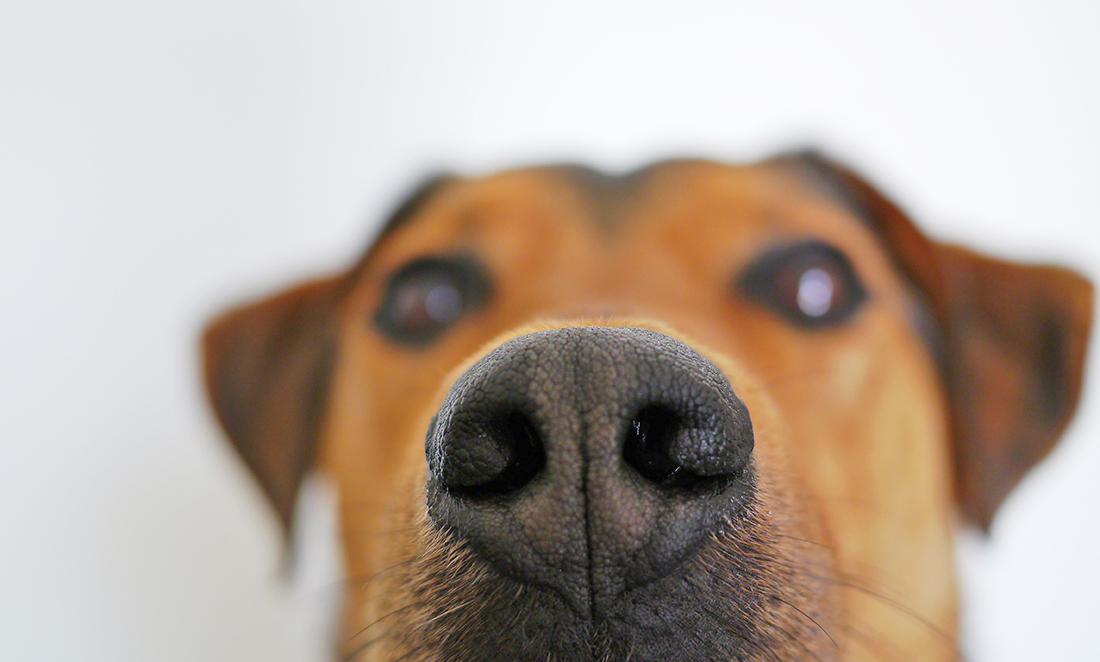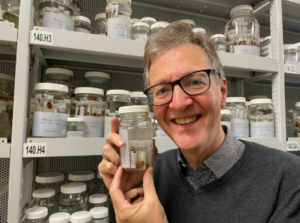For many animals, their life depends of their sense of smell. It helps them find food, avoid predators or identify potential mates.
For humans, too, the sense of smell plays an important role in different aspects of our lives.
For example, we use our nose to find the best food and avoid rotten morsels. We use perfumes, soaps and other toiletries with pleasant smells to make us more attractive to the opposite sex. But there is much more that can be learned from our body odours.
You may not be aware of it, but there are all sorts of smells produced by your body that convey different types of information. For example, if you are sick or stressed, your body may emit a particular scent. Even certain personalities are linked to particular scents.
Our body, it seems, has a lot to say through our scents.
The scent of age
Have you ever heard that “old people smell”? Well, it is actually true.
Old people do have a distinct smell, but it is not bad at all. A study from 2012 compared body odour samples from the armpits of 44 individuals from three different age groups from people in their 20s to folks as old as 95.
The study found that older participants (75 to 95 years old) had a distinct scent, which was not strong nor unpleasant—just characteristic of their age group.
“Elderly people have a discernible underarm odour that younger people consider to be fairly neutral and not very unpleasant,” said Johan Lundström, a sensory neuroscientist at the Monell Chemical Senses Center in Philadelphia, USA, who led the study, in a press release. “This was surprising given the popular conception of old age odour as disagreeable. However, it is possible that other sources of body odours, such as skin or breath, may have different qualities.”
The authors speculate that there might be an evolutionary reason why we are able to distinguish people of different age by their smell. “Similar to other animals, humans can extract signals from body odours that allow us to identify biological age, avoid sick individuals, pick a suitable partner and distinguish kin from non-kin,” said Johan.
Evolution has also shaped another age-related odour in humans: the scent of babies. A 2013 study confirmed a well known fact about babies: they smell delicious! Literally. The study found that the smell of 2-day-old babies activated a special part of the brain associated with rewards. This is the same brain region involved with identifying a delicious treat or a drug, and the effect was more pronounced in mothers.
“What we have shown for the first time is that the odour of newborns, which is part of these signals, activates the neurological reward circuit in mothers. These circuits may especially be activated when you eat while being very hungry but also in a craving addict receiving his drug. It is in fact the sating of desire,” said Johannes Frasnelli, lead author of the study.
Researchers speculate that their findings suggest that newborn odour may be a way to create an emotional link between mother and child, which leads to important functions like breastfeeding and protection.
Old age and yummy babies are just two of the secrets body odours reveal. But there are more.
The scent of disease
Certain diseases, like various types of cancers, seem to leave a particular odorous signature in the body of patients, which can be detected by a sensitive nose—like the one of a dog.
In fact, several human cancers, such as breast, melanoma, lung, ovary, colorectal, bladder and prostate cancers, can be detected by dogs. These cancers produce an odour signature that can be detected in things like urine, breath, blood and stools of patients. The scent is strong enough that dogs can then be trained to detect it with surprisingly accuracy. Even other diseases such as Parkinson’s disease may leave a signature that dogs can detect.
“The full potential of dogs to detect human disease is just beginning to be understood,” said Claire Guest, Chief Executive of Medical Detection Dogs in a recent news report. “For hundreds of years, dogs have guarded us, rescued us when we’re lost and provided unparalleled emotional support. Is it so hard to believe that they can detect the odour of human disease?” she asks.
“Dogs have an extraordinary sense of smell. They can detect parts per trillion—that’s the equivalent of one drop of sugar in two Olympic-sized swimming pools,” said Claire.
But disease-sniffing dogs can be hard to find. Luckily, a team from the University of Liverpool and University of the West of England (UWE) have developed a more practical way to detect cancer. They have created an apparatus, called Odoreader, which can detect bladder cancer as well other types of cancer.
“We have developed a device that can give us a profile of the odour in urine. It reads the gases that chemicals in the urine can give off when the sample is heated,” explained Norman Ratcliffe, from the Institute of Biosensor Technology at UWE. In their study, the device was 100% effective at detecting urine samples from cancer patients.
Scents from babies, old people or disease sounds cool. But did you know even your personality could have its own scent, and your sensitivity to certain odours might influence who you vote for?
The scent of personality
According to a 2012 study, people with certain personalities could be identified from their scent alone. Neurotics and dominant people seem to give the stronger whiff!
In their study, researchers collected sweat samples by asking 30 male and 30 female participants, the odour donors, to wear a cotton T-shirt for 3 days straight. Then, 100 men and 100 women, the odour raters, assessed the scent of these smelly T-shirts. These odour ratings were compared to self-assessed personality tests made by the odour donors.
The results showed a strong relationship between odour and three personality types: extroversion, neuroticism and dominance. In other words, people who considered themselves neurotic, dominant or extrovert had particular body odours that odour raters consistently identified in this study. Other personalities tested, such as agreeableness, conscientiousness and openness to experience, did not seem to have any associated scent.
So, now we know that certain personalities smell and can be detected by other people. A more recent study found an even more intriguing link: people who are quick to feel yucky about body odours might also feel drawn to authoritarian figures. The study went as far as exploring this idea during the 2016 US presidential campaign.
Researchers found a positive association between body odour disgust sensitivity and support for Donald Trump.
In the study, researchers asked whether people’s sensitivity to body odour, something called BODS or body odour disgust sensitivity, was related to the intention of voting for Donald Trump. “We showed a positive association between BODS scores and support for Donald Trump, who, at the time of data collection, was a presidential candidate with an agenda described as resonating with authoritarian attitudes,” the authors said in their study.
So what is the logic here? The authors speculate that people who are more sensitive to body odours (high in BODS scores) may have a stronger fear of disease. Unknown folk, for example, could represent a potential source of disease in the mind of someone scoring high in BODS.
“Our reasoning was that sensitivity to body odours should covariate with attitudes that may be fuelled by a motivation to prevent us from intergroup contact because of the fear of contamination. So, people higher in BODS could have more sensitivity to cues of disease and be more motivated to keep unfamiliar groups distant,” says Marco Tullio Liuzza, from the University of Catanzaro, who led the study.
So, next time you judge someone’s personality, age or health … think that it might all be in your nose. And that might not be a bad thing.











